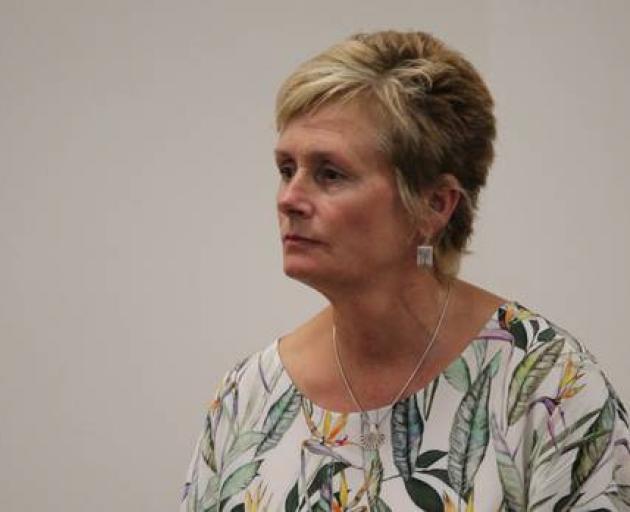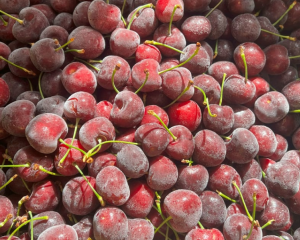
Joyce Mary Frances Austin (55) was sentenced today in the Auckland District Court by Judge Evangelos Thomas following an investigation by the Ministry for Primary Industries (MPI).
The Kohimarama woman, who operates New Zealand Boutique Wines Ltd (Boutique Wines), earlier pleaded guilty to procuring wineries to falsify wine export applications for 44.5 cases of wine to be used as samples at sales events and for promotions in the Republic of Ireland.
Her offending, which breaches the Wine Act 2003, took place between March 2013 and May 2014, with the wine having a retail value of about $1450.
“What needs to be taken into account is harm to the industry,” Judge Thomas said.
“It takes very little for there to be harm to the industry and harm to reputation.”
Today’s case comes just days after Yealands Estate Wines pleaded guilty to its “unprecedented offending” of falsifying documents and adding sugar to its products and copped a $400,000 fine.
The company’s founder Peter Yealands, former winery operations general manager Jeff Fyfe and former chief winemaker Tamra Kelly were also sentenced and fined up to $35,000.
The offences, which led to the first convictions under the Wine Act, related to records of more than 6.5 million litres of wine, with about 3.7 million litres exported to Europe between May 2013 and December 2015.
Judge Thomas said Austin’s offending was nowhere near the same scale as Yealands Estate’s but had also targeted the “heavily protected” European market.
“The moment there is a chink in that armour, it has to undermine the faith people can put in our Government’s assurance to the European Union. That everything you are receiving over there is crossing the t’s and dotting the i’s,” he said.
Austin’s lawyer, Honor Ford, said no one had done more for New Zealand wine in the Irish market than her client.
The offending was a “source of embarrassment” for Austin, who wished to continue to develop Boutique Wines in the EU market.
Ford said Austin wanted to take responsibility for her actions but publicity of her offending had already seen a reduction in her work.
“She may never recover from the impact of this,” Ford said.
The basic and necessary regulations were there for Kiwi winemakers to continue to enjoy the lucrative European market, Judge Thomas said.
“It will be the producers who pay the price,” he said of breaches.
“It is critical to the reputation of the wine industry overseas ... that exporters meet those minimum and necessary requirement.”
However, Judge Thomas said it was hard to quantify what the harm would be in a highly competitive market.
“These thing tend to accumulate,” he said.
“There will always be breaches, and there will always be small players committing some of those breaches.”
But the judge concluded Austin’s offending was repeated, premeditated and “quite cynical”.
The businesswoman expressed a desire to quickly complete the export shipments but showed “disdain” and frustration at the need to go through the various requirements, he said.
Judge Thomas said Austin had undone all her hard work, primarily in Ireland.
Despite an application by Austin for a discharge without conviction to allow her to continue to travel and work freely overseas, Judge Thomas said the punishment of a conviction did not outweigh the gravity of her offending.
“I must refuse your application and you are convicted,” he said, while also fining her $6000.
The five New Zealand wineries caught up in Austin’s offending have been suppressed, three of them permanently today by Judge Thomas.
MPI was not convinced it was in the public interest for the wineries to be charged, the court heard.
A letter from the New Zealand Winegrowers’ Association was also read - in part - to the court.
“We do not anticipate that news of the sentencing will have a direct impact [on the industry],” it said.
The winegrowers felt Austin’s offending was a “one business fraud” and would be quickly forgotten.
In a statement provided to the Herald, New Zealand Winegrowers said it was extremely disappointed by the actions of Austin, which was “potentially damaging to the wine industry’s premium reputation”.
“New Zealand Winegrowers takes any alleged breaches of the Wine Act incredibly seriously, and we welcome the prosecution by MPI.”
MPI’s manager of compliance and investigations, Gary Orr, said in a statement while the volume of wine was not large, Austin’s offending was significant.
“The wineries involved received formal warnings from MPI as it was determined that they had, until that point, been compliant and were acting on professional advice from Joyce Austin who misled them over the legality of what she was asking them to do,” he said.
The fifth winery was not warned but for legal reasons MPI is unable to comment further, Orr said.













